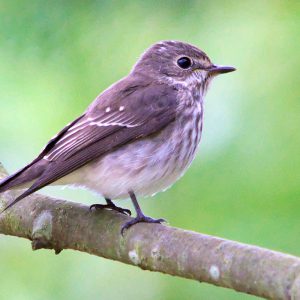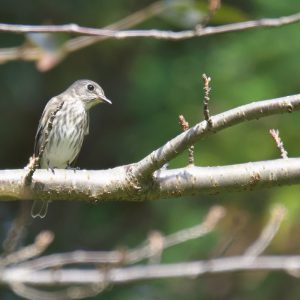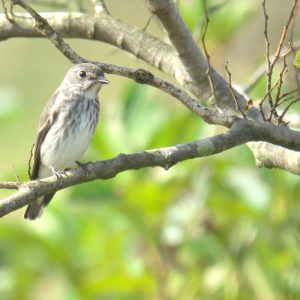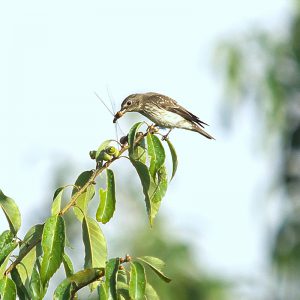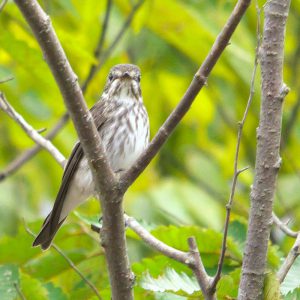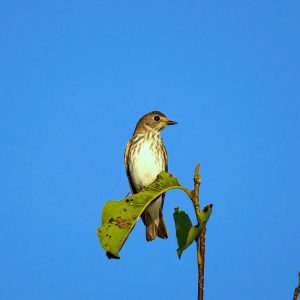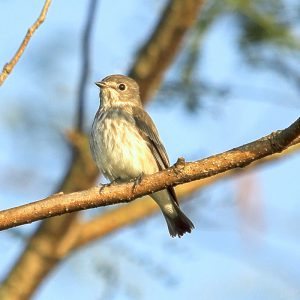むなかたが集まる
電子データベース
電子データベース
エゾビタキ
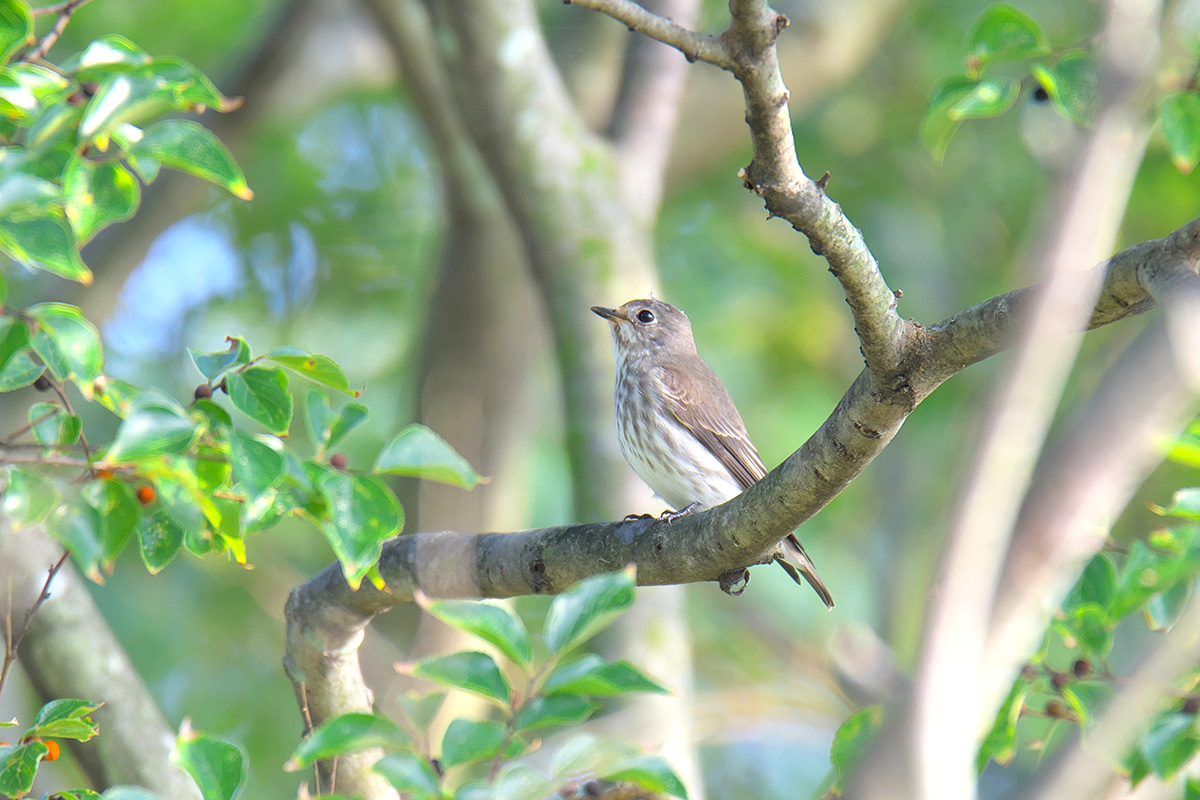
| 種目 | エゾビタキ (蝦夷鶲) | 分類 |
スズメ目 ヒタキ科 サメビタキ属 |
学名 | Muscicapa griseisticta | 英名 | Grey-spotted Flycatcher |
|---|---|---|---|---|---|---|---|
|
エゾビタキ (蝦夷鶲) |
スズメ目 ヒタキ科 サメビタキ属 |
Muscicapa griseisticta | Grey-spotted Flycatcher |
宗像市でみられる場所・時期
宗像では旅鳥で,春秋の渡りの時期(4月後半から5月,9月から10月)に,市内全域の里山,公園などの林内で観察できる。春に比較して秋の渡り時期の方が観察機会が多い。
特徴
全長14.5㎝。スズメより小さい。雌雄同色である。
額から体上面は,灰褐色である。腮からの体下面は白色で,明瞭な暗灰褐色の縦斑がある。翼は黒褐色で,特に三列風切の羽縁は淡褐色で明瞭である。アイリングは淡褐色,嘴,足は黒褐色で,下嘴基部は橙褐色で,コサメビタキ,サメビタキよりも嘴の幅は狭い。初列風切の突出は長い。
習性
平地から山地の林や林縁などに飛来する。渡り期に一羽,または,小群で行動する。梢によくとまり,飛んでいる昆虫をフライイングキャッチで捕らえて食べる。秋の渡り時期には木の実などをよく食べる。
地鳴きは「ツィ ツィ」などである。
分布
旅鳥としてほぼ全国で記録されている。沿海州を中心として,カラフト,千島列島,カムチャツカ半島南部,北海道などで繁殖する。秋の渡りの時期には,八重山諸島などを相当数が通過する。
台湾,フィリピン,セレベス島,ニューギニア西部などで越冬する。
その他
サメビタキ,コサメビタキ,エゾビタキの区別が必要になる。
 はじめに
はじめに お問い合わせ
お問い合わせ